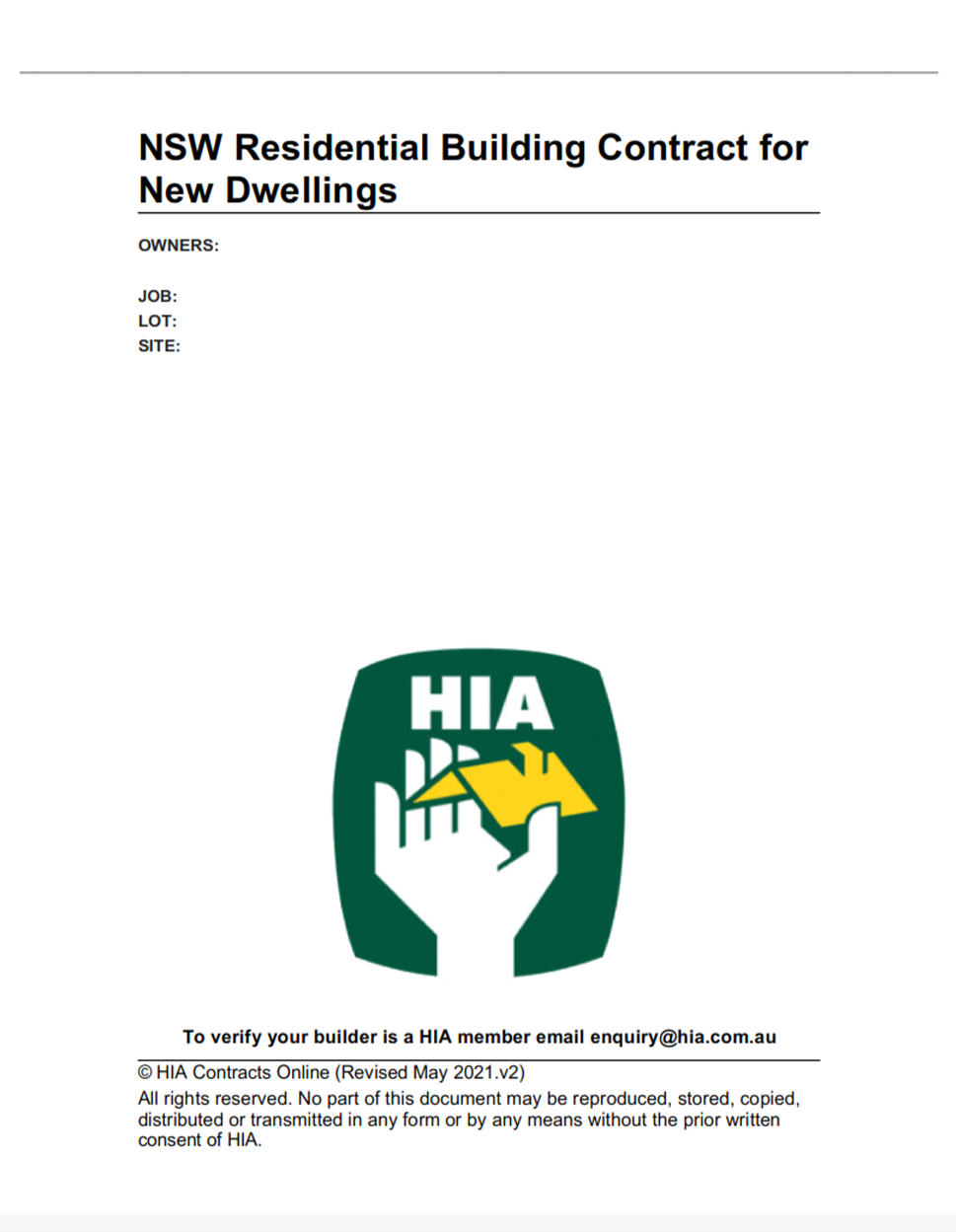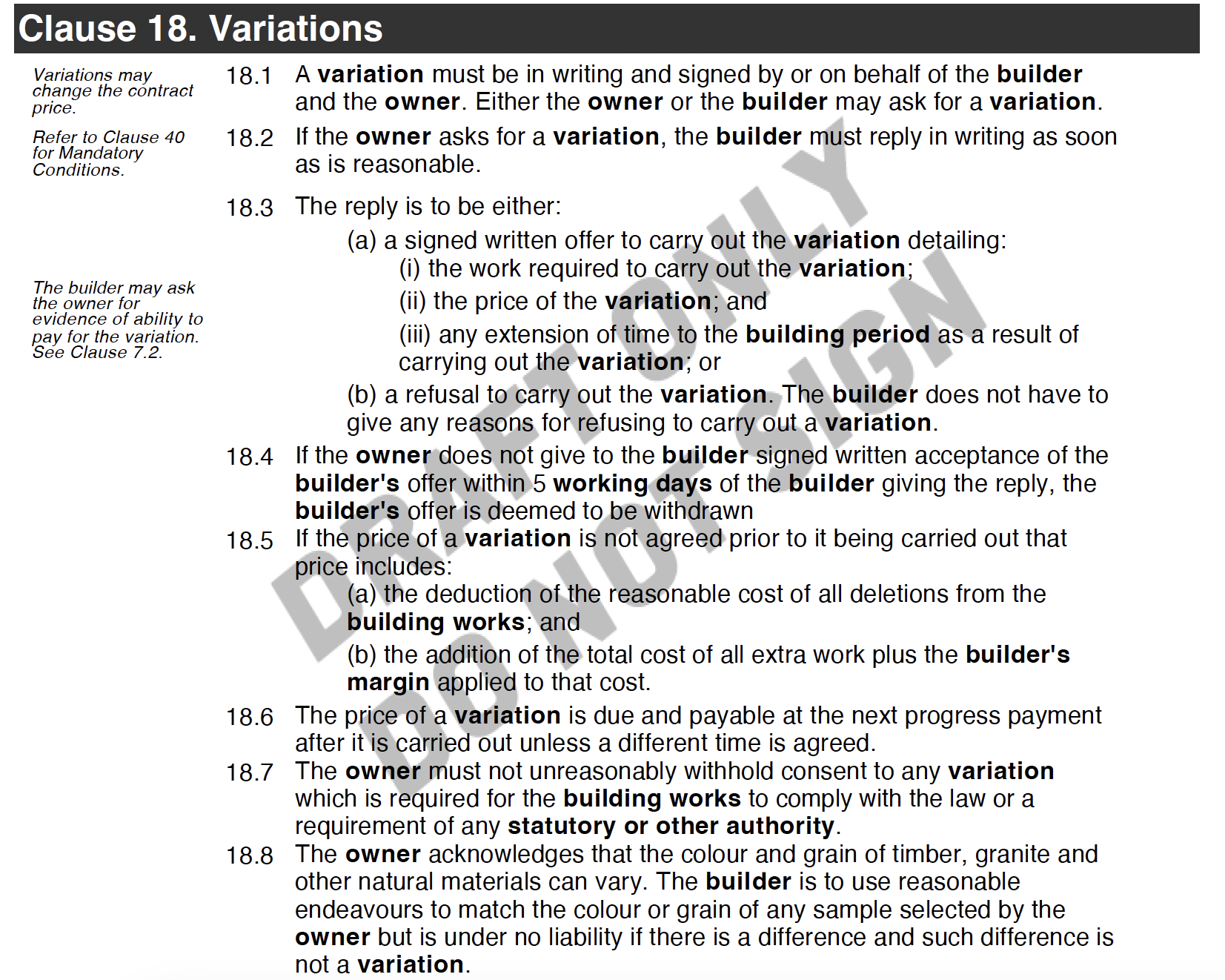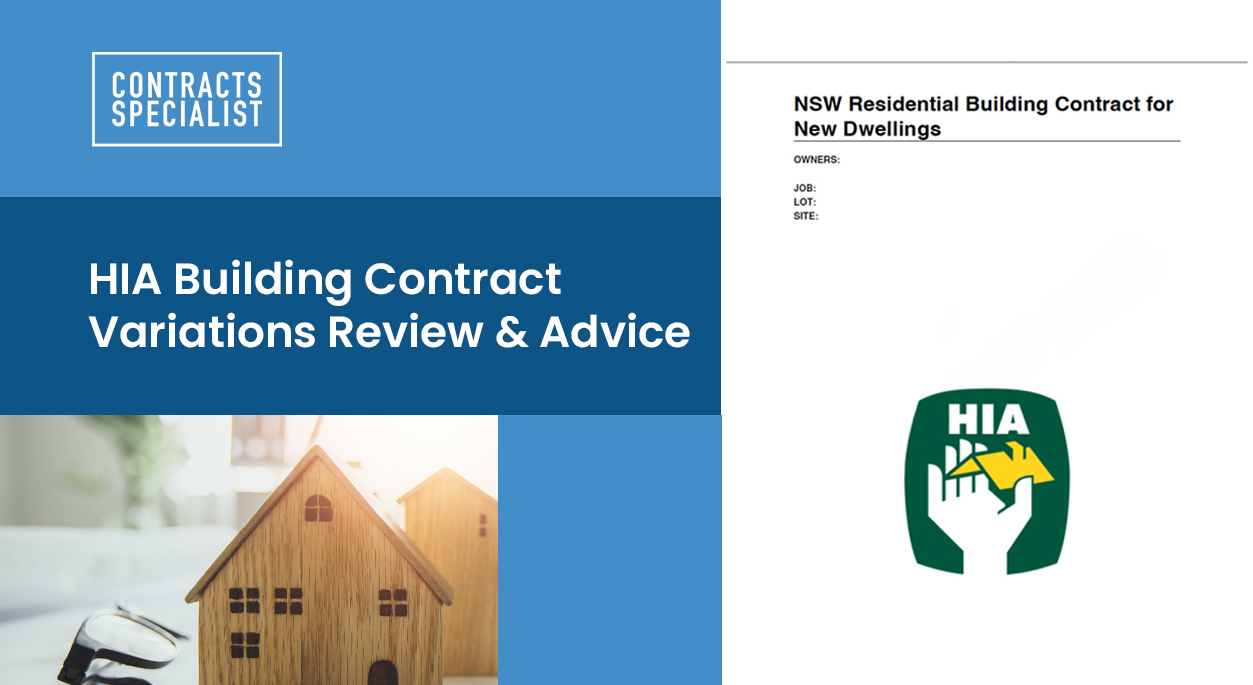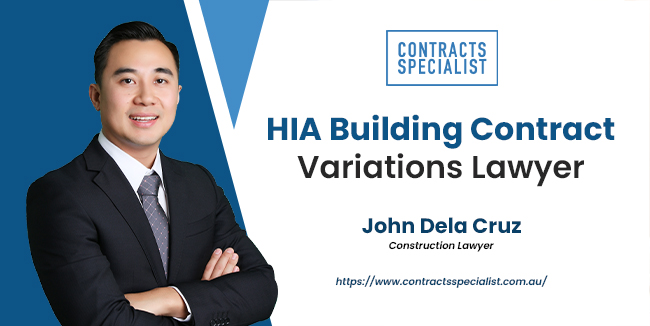What are variations?
What Causes Contract Variations?
Some contract variations are caused by changes to:
- design
- materials
- quantities
- quality
- manner of carrying out the works.
Understanding variation of contract and the causes of contract variation are crucial, as they often affect the contract price and can lead to disagreements between the builder and owner.
Who may ask for variations?
Under the HIA NSW Residential Building Contract for New Dwellings, either the owner or the builder may ask for variations.

Variations by the builder
Builders sometimes send a notice of variation where the builder asks for a variation, such as changing the flooring from one material to another, due to unavailability of supply. This change of work may lead to an increase or decrease in the contract price, although it’s usually the former.
Related content: Risks and Benefits for Builders and Owners under Variations Clause
Variations by the owner
The owner is the person contracting the builder to commence building works – in this case – you.
The owner may request the builder to deviate from the plans, subject to the builder’s agreement or refusal. An example of this is when the owner requests the builder to add an additional room or change the material that will be used for a specific work.
Clause 18: Understanding Variations
Depending on the type of construction contract you are using, variation clauses might differ. However, an example of a variation clause in a contract can be found under Clause 18 of the HIA NSW New Dwellings Contract.
Clause 18 details how HIA variations may be properly made, outlining the limitations and obligations imposed on both parties.

Main points under Clause 18:
1. A contract variation is an agreement. Therefore, it must be:
- in writing; and
- signed by both parties.
2. If the owner sends a contract variation request, the builder should reply as soon as is reasonable.
3. The builder’s reply could be either an offer to carry out the variation or a refusal.
a) If the builder offers to carry out the variation, he should state in his reply:
- the work required to carry out the variation;
- the price of the variation; and
- any extension of time to the building period as a result of carrying out the variation
b) If the builder refuses to carry out the variation – he does not have to give out reasons.
4. The builder’s offer is deemed withdrawn, that is, the variations asked for by the owner will not be made if:
- the owner does not give the builder the signed written acceptance of the builder’s offer, within 5 working days of the builder giving his reply.
5. Valuation of variations: If the price is not agreed upon prior to the variations being carried out, the price would include:
- deductions of reasonable cost of all deletions from the building works; and
- addition of the total cost of all extra work plus the builder’s margin.
6. The builder may claim the price of variation is due and payable at the next progress payment after it is carried out (unless a different time is agreed).
7. If a variation is required for the building works to comply with the law or a requirement of any statutory or other authority, the owner must not unreasonably withhold consent to that variation.
8. Owner acknowledges that the colour of grain, timber, granite, other natural materials – may vary.
Related content: Practical Benefits of Variations Clause 18 under HIA NSW Contract
Why are Variations a Common Source of Dispute?
Variations are a natural part of the construction process, but they can frequently lead to disputes between homeowners and builders. The variation disputes usually arise due to differing perspectives between the parties.
Among other things, variations always affect the contract price, and questions may arise whether the change is indeed a variation or is inherently, impliedly, or necessarily included in the works. There may also be issues on variations made by the builder that the owner did not agree to or that the owner could not afford.


Master Construction Variations with HBApp
Dealing with variations in your HIA NSW Building Contract? The Home Building App (HBApp) is here to guide you through every step, simplifying and demystifying the process of managing contract variations.
HBApp: Your Ally in Managing Construction Contract Variations
- Efficient Document Organisation: Keep all variation-related documents organised and accessible, reducing risks of misunderstandings. Learn more about organised files.
- Streamlined Communication: Ensure clear and documented communication between you and your builder regarding any variations. Discover streamlined communication.
- Risk Management Tools: Effectively navigate the complexities and potential risks associated with contract variations. Understand risk management.
HBApp empowers you to confidently manage your home construction project, making it a hassle-free experience.
What to Do When There is a Dispute Related to Variations
Under Clause 35, if a dispute arises, a party must give written notice to the other party. Within 10 working days, the parties must attempt to resolve the dispute or agree on methods of doing so.
If, following the above, the dispute remains unresolved, recourse may be had with the Office of Fair Trading, where the parties may be instructed to undergo ADR (Alternative Dispute Resolution).
If the issue still remains unresolved at the Fair Trading level, the aggrieved party may lodge a complaint with the NSW Civil and Administrative Tribunal (NCAT) where the matter will undergo directions hearings and final hearings.
Finally, if the dispute still remains unresolved, or if you’re not satisfied with the tribunal’s decision, you can lodge a complaint in court.

Get Expert Construction Contract Review and Advice
Get Your Construction Contract Reviewed Now
Step 1:
Simply fill out this form and upload your contract.
Step 2:
We’ll review it and return to you with a fixed-fee quote.
Minimise construction risks on cost, time, and quality.
Get Home Building Contract Review and Advice now.
How We Can Help: Legal Services for Homeowners
The HIA contract is generally written to favour builders. Hence, it may be a good idea to engage a specialist construction lawyer for Contract Review and Advice. As a solicitor and construction lawyer with more than 10 years of experience specialising in construction law, I have advised and represented homeowners, builders, and contractors in tribunals of NSW, Australia, and all courts of competent jurisdiction.

My expertise includes advising on HIA Contract Variations, contract rights, risks, obligations, and negotiating and amending contracts to reflect intentions. Don’t leave your legal rights to chance. You can also email me for tailored advice and let my experience guide you through the intricacies of construction contracts, ensuring your interests are protected and your building journey is a success.




